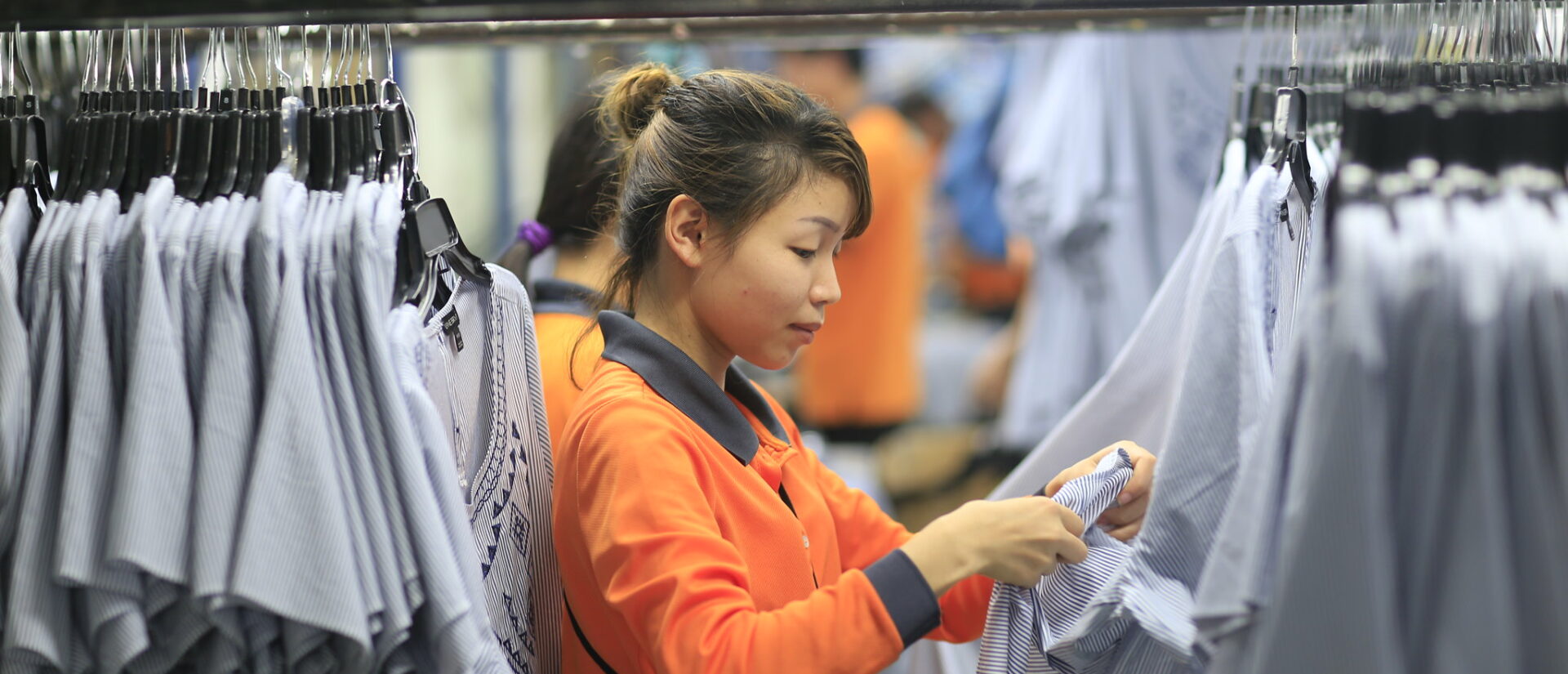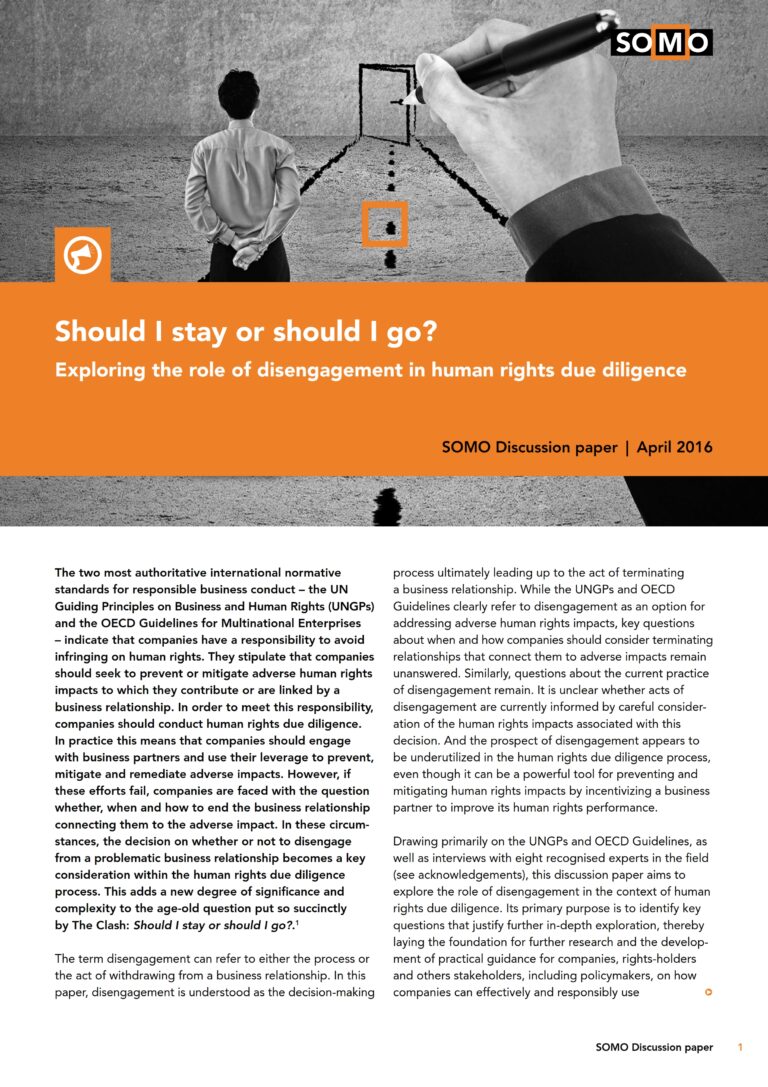
Corona crisis lays bare the need for responsible conduct in dealing with business relationships


Workers in global supply chains at great risk
As the corona crisis grips the globe, some of its most severe health and economic impacts are felt by vulnerable workers and communities that sustain the global supply chains for sectors like agriculture, textile, technology and mining. While companies consider cancelling and postponing orders with their suppliers at the other side of the world, millions of families risk losing their livelihoods, with little or no social safety net to rely on.
Responsible disengagement in the time of corona
In the joint position paper ‘Responsible disengagement in the time of corona’, SOMO, ECCHR(opens in new window) and PAX(opens in new window) call upon companies and policy-makers to carefully consider the human rights impacts from disengagement, reminding them of the principles set out in the OECD Guidelines for Multinational Enterprises(opens in new window) (OECD Guidelines) and the UN Guiding Principles on Business and Human Rights(opens in new window) (UNGPs).
Most vulnerable hit hardest by crisis
Even before the pandemic broke out, the majority of workers in global supply chains faced barriers or risks to their human rights. For example, most of these workers were already subjected to unstable contracts, long working hours, very low wages, dangerous work, and even forced or bonded labour. For these already vulnerable people, the loss of economic livelihood caused by the cancellation of orders by companies can indeed turn out deadlier than COVID-19 itself.
Responsible disengagement in the time of corona
Citing the UNGPs and OECD Guidelines, the paper argues that companies should first of all avoid disengagement for economic reasons, providing a range of concrete recommendations to prevent hasty, irresponsible departures. For example, companies could suspend or reduce payments to executives and dividends to shareholders, and they could continue to place orders for post-crisis consumption, or creatively shift orders from products no longer needed by global markets to those under increased demand, such as medical equipment.
If cancelation of supplier relations and disengagement is absolutely unavoidable, companies should ensure it is done responsibly by mitigating its impacts and by formulating a responsible exit strategy, in consultation with suppliers, workers and other stakeholders. The paper provides a detailed description of measures to lessen the impacts of disengagement.
Wake-up call
Companies should use this crisis as a wake-up call and begin developing a post-corona responsible business model, the authors write in their concluding remarks. Joseph Wilde-Ramsing (SOMO researcher): “This crisis shows us once again that our current globalised economy is unsustainable and places unnecessary hardship on the most vulnerable in our supply chains. This makes the entire economy vulnerable and underscores the need for a just transition towards cleaner, fairer and less volatile and vulnerable production and consumption models.”
In 2016, SOMO published another paper on the role of disengagement in human rights due diligence, titled ‘Should I stay or should I go?‘.
Do you need more information?
-

Joseph Wilde-Ramsing
Advocacy Director -

Marian Ingrams
Director of OECD Watch
Partners


Related content
-
Responsible disengagement in the time of corona Published on:
 Joseph Wilde-RamsingPosted in category:Publication
Joseph Wilde-RamsingPosted in category:Publication Joseph Wilde-Ramsing
Joseph Wilde-Ramsing -
Should I stay or should I go? Published on:
 Joseph Wilde-RamsingPosted in category:Publication
Joseph Wilde-RamsingPosted in category:Publication Joseph Wilde-Ramsing
Joseph Wilde-Ramsing
-



